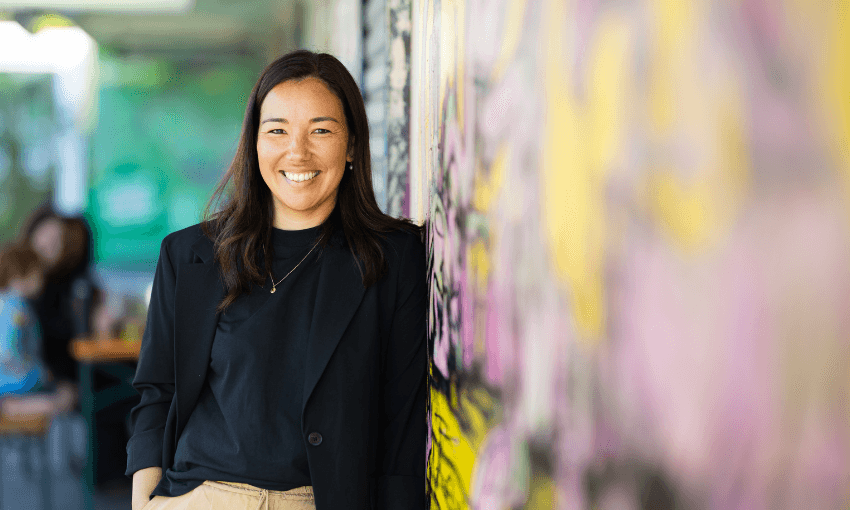The Hanoi Summit – the second of its kind between US President Donald Trump and North Korean leader Kim Jong-Un – has disappointingly ended with no agreement being reached. Rebekah Jaung writes about the ramifications.
T-shirts with caricatures of the two heads of state, King Jong Ale, and, images of crowds lining the streets of Hanoi with flowers and a most unlikely combination of flags. The lead up to the Hanoi summit this past Wednesday and Thursday was filled with the same mixture of anticipation and doubt that preceded the first Trump-Kim summit in Singapore last year.
That the proceedings ended abruptly with ‘no deal’ reached between the two leaders was always a possibility but still a disappointment. To borrow Chairman Kim’s words from the first day of the summit, it looks as though further ‘painstaking efforts’ and ‘a lot of patience’ will be required by all parties in order to reach the goal of stable peace on the Korean Peninsula.
The disappointment will be made greater for Koreans on both sides of the divide as there is another historical milestone that would have worked beautifully with an end of war agreement. 2019 marks the centenary of a modern and undivided Korea. It is the year that key events of the grassroots movement for independence from Japan (The March 1st or Samil Movement) took place (March 1st) and the Korean Provisional Government was established and foundational constitution was enacted (April 11th).
The expectation to produce concrete results in Hanoi were greatly increased in comparison to the first summit and tensions were heightened, with liberal American politicians like Nancy Pelosi taking an almost antagonistic position about the peace process, the Cohen testimony taking place simultaneously and alarming news coming in from India and Pakistan.
One positive development heading into the summit was this resolution that was introduced by a group of mostly progressive members of Congress, including Korean-American Andy Kim and Alexandria Ocasio-Cortez, calling for a formal end to the Korean War. The potential for a group of progressive politicians to advocate for the peace process is a promising one.
The significant role that American national politics has historically played in the Korean peace process has once again been named as a contributor to the ‘no-deal’ outcome. This cover from the Guardian, combining reporting of the Cohen testimony with a photo of the summit is a neat demonstration of the way that the Trump administration’s capacity to sign a deal that could be construed as anything other than an overwhelming diplomatic ‘win.’
Guardian front page, Thursday 28 February 2019: ‘Racist, liar, conman’: claim that imperils the president pic.twitter.com/iBbUUk0L6H
— The Guardian (@guardian) February 27, 2019
Another issue that has been raised repeatedly in light of the summit, both out of genuine concern and sometimes in bad faith is that of North Korean human rights. This is an unfortunate point to use as whataboutism as available evidence on the state human rights in the country paint a picture that is undoubtedly horrific and need to be addressed for their own sake.
The prolongation of war on the Korean Peninsula is the greatest threat to the well-being of the people of North Korea. Resources that could be used for infrastructure and social services are currently diverted into the military and economic sanctions are exacerbating food insecurity, delaying the delivery of humanitarian aid and blocking equipment for managing tuberculosis from entering the country. This article on the events surrounding the death of Otto Warmbier is one fascinating and horrifying account of the complexities the issue and the role that diplomatic channels play in advocating for human rights in North Korea.
Alongside recommendations in keeping with the crimes against humanity which are described within it, the UNHRC report of the Commission of Inquiry on human rights in North Korea recommends ratifying a peaceful settlement of the Korean War which commits to all the principles of the Charter of the United Nations. Without these summits, or engaging with the Kim regime, this will never be possible.
With events on the Korean Peninsula precariously but steadily moving towards stable peace, we must also consider the right of millions of Korean people to exist without the constant threat of war, for separated families to be reunited, and for the opportunity for Koreans to have a chance to realise the future that was envisioned by those who the struggled for an independent and unified Korea during the past century.
President Moon Jae-In, a key figure in the peace process, will be announcing the administration’s next steps for inter-Korean engagement during his speech at today’s commemoration event in South Korea today. Closer to home, the Auckland March 1st centenary event is being organised by the local Korean Society and will include a reading of the Declaration of Independence and a presentation on the issue of Japanese military sexual slavery. Later this month, Moon Chung-In (special advisor to President Moon for Foreign Affairs and National Security) is visiting Aotearoa to speak to the local Korean community and media.
Although this summit was not the breakthrough that we were hoping for, the channels of communication remain open and we are still in the best position there has ever been in terms of negotiating peace. The goal of stable peace on the Korean Peninsula is much bigger than the two men who met in Hanoi, and there is a role for the international community to play in fostering a global environment which promotes ongoing negotiations.





